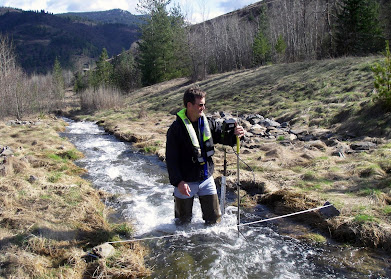OU students and WaTER Center personnel are assisting in the design of a water supply system to benefit residents in Puerto Parada, a village near the Pacific coast of El Salvador. The goal of the water system expansion is to increase the current distribution of clean water from 390 families to 946 families.
Typical fishing and tourist boats in the Bay of Jiquilisco, Puerto Parada, in El Salvador.
The EWB - Iowa City professional chapter is taking the lead on the project. The computer software, EPANET, was used to develop a preliminary model of the existing Puerto Parada water system. Once an accurate model of the existing system is developed, then various conditions (i.e., pressure, flow rate, storage volume, piping, etc.) can be changed in the model to develop improvement alternatives to meet the project goals, including expansions to future service areas.
 |
Students from the University of Oklahoma help install a water tank for a school garden in the Bajo Lempa region of El Salvador.
|
Students from the University of Oklahoma, under the leadership of Dr. Jim Chamberlain, have made several trips in the past to the same region, working with local leadership on several water supply projects. They have helped to install solar panels for water pumping, water tanks, and a community garden in a local school.
 |
| Students from the service-learning organization, Sooners Without Borders, conduct water quality sampling and analysis in the tidal waters of El Salvador along the Pacific coast. |
The future scenario for Puerto Parada will likely require the installation of one or more pressurized storage tanks near the well or along the water distribution pipeline. The tank volumes and pump sizing depend upon the average demand and peak flow rate of the community. Students on campus will get valuable design experience with this project, based on recommendations and parameters given to them from the local community.















